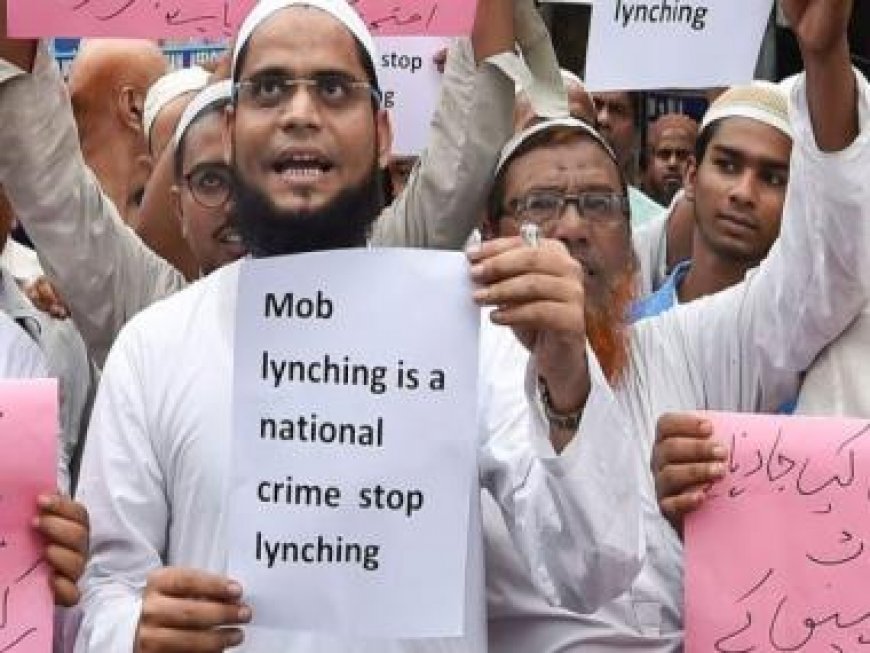Mob lynching, rape, suicide: What are the changes in India’s criminal laws?
Mob lynching, rape, suicide: What are the changes in India’s criminal laws?

The winter session of Parliament has been stormy with a mass suspension of Opposition MPs. But despite the upheaval, the government is pushing some bills. India is overhauling its criminal laws, doing away with colonial-era legislation. The Indian Penal Code (IPC) of 1860 will be replaced by the Bharatiya Nyaya Sanhita.
Home Minister Amit Shah presented three crucial bills in the Lok Sabha including the Bharatiya Nyaya (Second) Sanhita, 2023 (BNS). The other two, the Bharatiya Nagarik Suraksha (Second) Sanhita, 2023, and the Bharatiya Sakshya (Second) Bill, 2023, will replace the Code of Criminal Procedure (CrPC) of 1973 and the Indian Evidence Act, of 1872.
The laws were passed without much debate because of the suspension of 143 Opposition members following protests over the recent security breach in Lok Sabha.
The IPC has been the official code of India for more than 160 years and covers all aspects of criminal law. Now with the Bharatiya Nyaya Sanhita (BNS), the government wants to bring in some big changes.
We take a look at the new laws and how they compare with the IPC.
Suicide
New law: Attempting to die by suicide will no longer be considered a criminal offence, according to the BNS.
The original bill introduced the concept of ‘community service’ as a form of punishment for an attempt to die by suicide.
In the proposed BNS, abetment to suicide was a punishable offence “with imprisonment… [up] to ten years and shall also be liable to fine”.

Current law: Section 309 of the IPC which punishes an attempt to die by suicide has been one of the country’s most archaic laws. “Whoever attempts to commit suicide and does any act towards the commission of such offence, shall be punished with simple imprisonment for a term which may extend to one year or with fine, or with both,” it said.
However, The Mental Healthcare Bill (MHCA) of 2017, which came into force in 2018, clarified that Section 309 IPC could be used to punish attempted suicide only as an exception.
Under Section 306, IPC, if any person commits suicide, the person found to have abetted the commission of suicide shall be punished with imprisonment of either description for a term which may extend to 10 years and shall also be liable to a fine.
Lynching and hate crimes
New law: Mob lynching and hate crimes have been made separate offences under the BNS.
The bill penalises lynching at par with murder. The offence deals with cases when a mob of five or more individuals commits murder based on factors such as race, caste, community, or personal belief. It could attract a death penalty, depending on the severity of the crime.
In the earlier version of the bill, hate crimes carried lesser sentences than murder, which could earn the offender a life sentence. However, the revised version brings them to par.

Current law: The IPC did not have a defined provision to deal with hate crimes and mob lynchings. As punishment for mob lynching, police registered a case of murder under Section 302 of the IPC, which says, “Whoever commits murder shall be punished with death, or imprisonment for life, and shall also be liable to fine.”
Sedition
New law: The offence of ‘sedition’ is omitted. The new law penalises acts endangering the unity and integrity of India (Clause 150). While sedition criminalised acts against the government, the BNS replaces the government with the country. “Rajdroh” has been changed to “deshdroh”, according to a report in Live Law.
Citizens have the right to speak against the government and it should be protected. But acts against the nation cannot be tolerated, it says.
In the new provision, the maximum penalty could be seven years of imprisonment.
Current law: According to Section 124A of the IPC, whoever, by words, either spoken or written, or by signs, or by visible representation, or otherwise, brings or attempts to bring into hatred or contempt, or excites or attempts to excite disaffection towards, the Government established by law in, shall be punished with imprisonment for life, to which fine may be added, or with imprisonment which may extend to three years, to which fine may be added, or with fine.
The current law on sedition carries a penalty of up to three years in prison or life imprisonment.
Crimes against women and children
New law: Under BNS, separate provisions have been made to deal with crimes against women and children.
In the case of the rape of a minor girl, life imprisonment and death penalty can be given. A gang rape could lead to 20 years or imprisonment for the rest of life.
The age limit for consensual sex with wife has been increased to 18 years.

Current law: Section 376(d) of the IPC, which deals with gang rape, calls for rigorous imprisonment for 20 years to life imprisonment.
According to The Criminal Law (Amendment) Ordinance, 2018, gang rape of girls below the age of 12 years will carry a minimum imprisonment of 20 years and is extendable to life imprisonment or death. And, rape of girls below the age of 16 years is punishable with imprisonment of 20 years or life imprisonment.
Consensual sex with a wife aged above 15 was not an offence as per IPC.
Other new offences under BNS
The new offences include organised crime, terrorist acts, hit-and-run, sexual exploitation of a woman by deceitful means, snatching, abetment outside India, acts endangering the sovereignty, integrity, and unity of India, and publication of false or fake news.
With inputs from agencies
What's Your Reaction?

























































